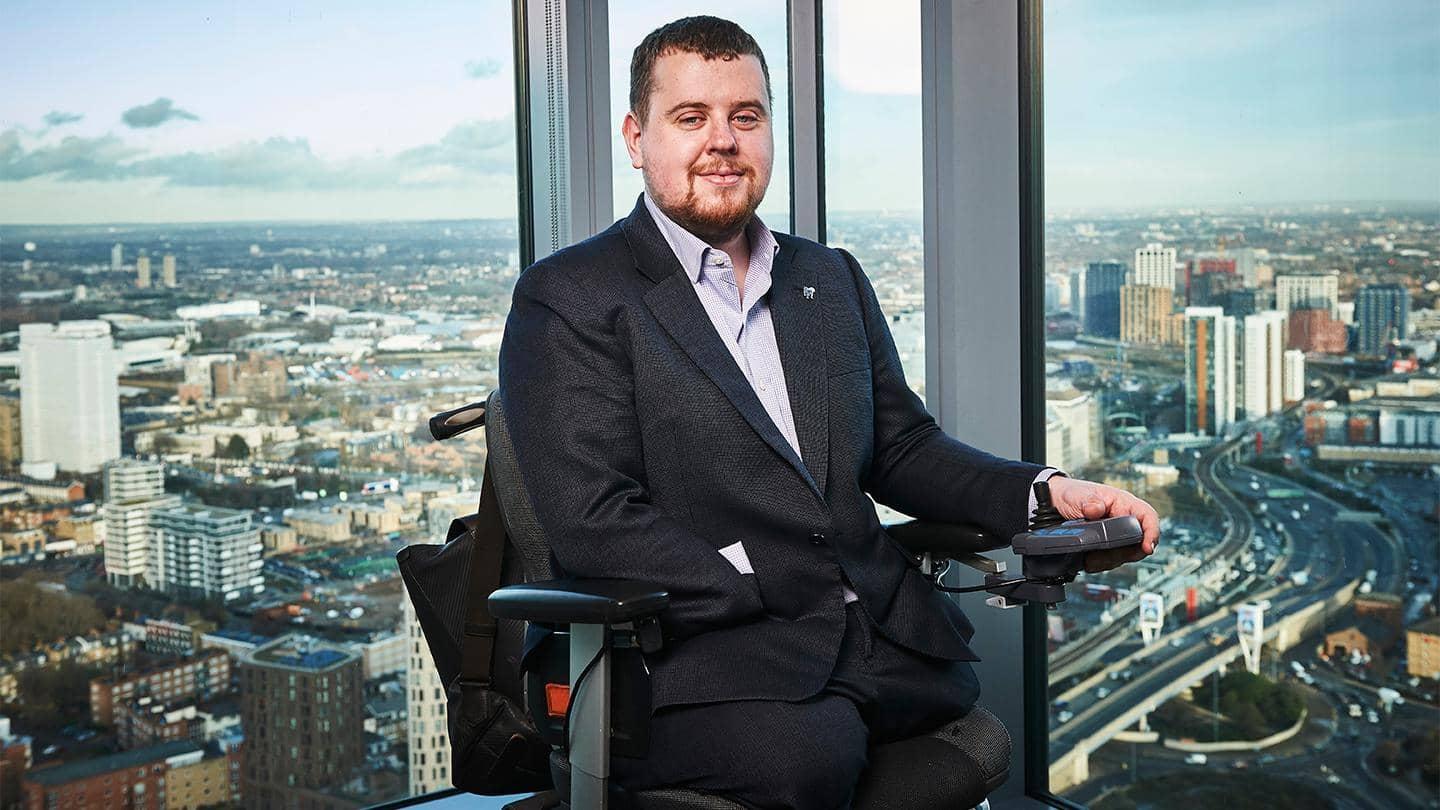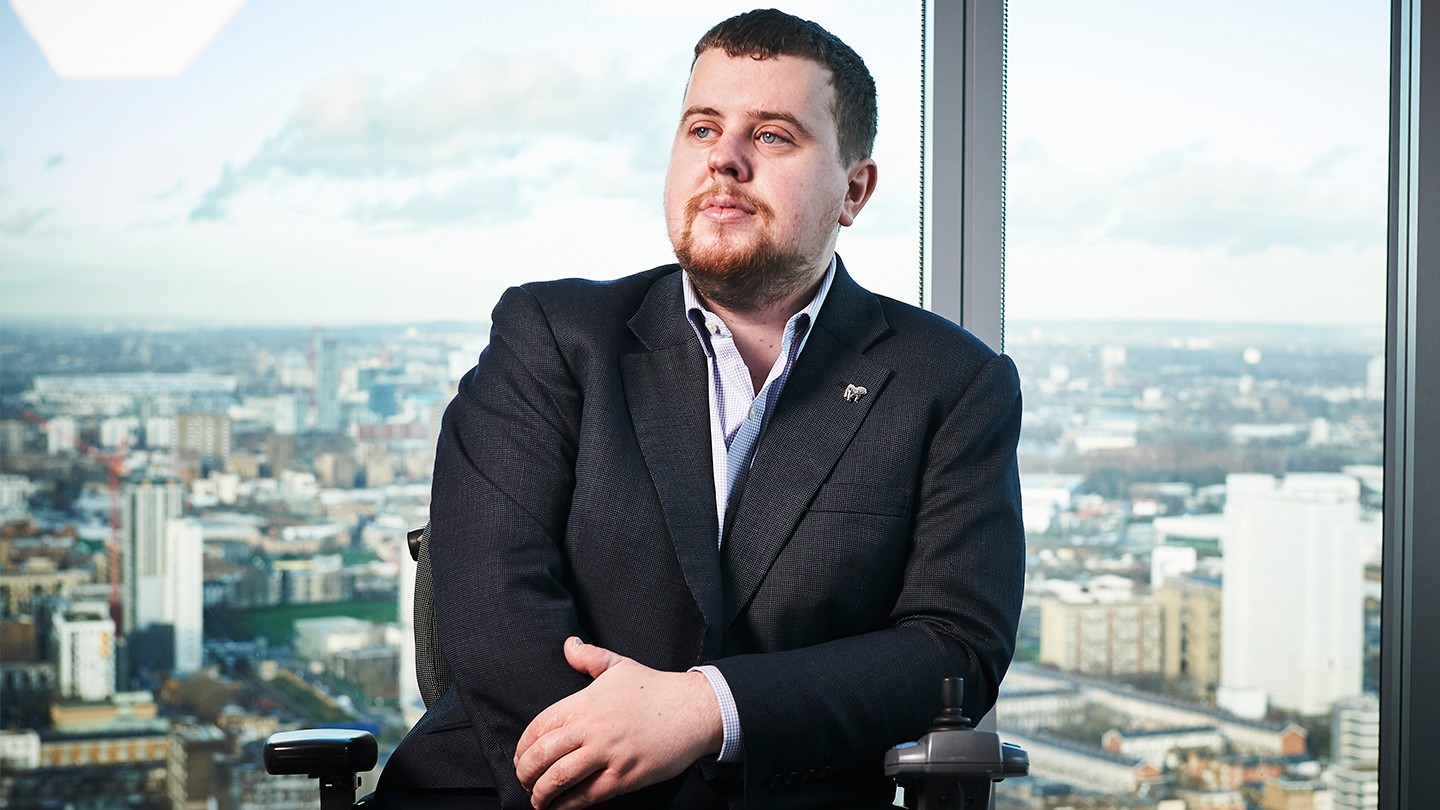
Community
Barclays AFTER Programme: helping veterans forge new careers
More than 12,000 people leave the armed forces each year and many struggle to transition into civilian life. Matt Weston – who lost both his legs and an arm in an explosion whilst serving in Afghanistan – understands just how dramatic that transition can be. Through his work with the Barclays AFTER Programme, he supports veterans making the transition back into civilian life.
Matt Weston was just 20 years old and serving with the Royal Engineers in Afghanistan when an explosion changed his life forever.
He was clearing landmines with 33 Engineer Regiment, when an improvised explosive device, or IED, went off. Matt lost both his legs and his right hand, suffered from a burst bladder, lacerated liver and burns as well as internal wounds that meant the removal of a section of his intestines.
He is thought to be the most seriously injured British solider to survive an explosion in the country.
As would be expected, his recuperation was long and difficult. Quite apart from the physical recovery, he suffered with mental health problems and remembers long periods of not wanting to leave his home.
But things changed when a colleague suggested he start preparing for life after the military. “My recovery officer sent me off to a CV workshop with Barclays and things just went from there.”
Matt eventually took up a role in the team running Barclays’ Armed Forces Transition, Employment and Resettlement (AFTER) programme for military veterans, becoming just the second full-time employee in the team.
“I was a non-graduate and left the army as a private soldier with serious injuries and then had mental health issues, but I’ve forged a career in a field I never thought I’d end up in. When service personnel I work with see what I’ve achieved, it makes them more positive about what they can do. If I can do it, anyone can.”

Matt Weston works with veterans through the Barclays AFTER Programme
Barclays AFTER Programme
The AFTER programme supports people leaving the armed forces. Since being established in 2010, it has supported more than 7,000 military veterans and Barclays has directly hired around 700 of those on the programme to work with the bank.
Matt explains: “The programme has many threads to it. First and foremost, we’re there to help people transition to civilian life. This could be anything from helping veterans find somewhere to live to training and employment support.”
Barclays donates £250,000 to military charities each year, with colleagues also raising a similar amount. Those with the most serious needs are referred to service providers with the right expertise. Since the programme started, around £6 million has been donated.
Matt explains what happens for those who want to start finding work: “A lot of people are not remotely interested in financial services. Through their interactions with us, some decide they like it – and some retain their view!
“Irrespective of whether they want to work for us or not, our key commitment is helping veterans understand how their skills are transferable to other industries.”
Leaders in battle to leaders in finance
Matt explains why forces veterans have often untapped skills that can transfer to the corporate world. “There are various benefits to employing vets, diversity of thought for one. Instead of hiring people from the same schools and same universities into the same areas, we’re getting people who might think in a slightly different way.
“A lot of what you do in the forces is about managing and leading people. In a corporate setting, people often don’t get leadership training until they’re very senior, whereas you get leadership training from the role of private and upwards in the forces.”
Even those with seemingly specific skill sets can find a home: “People in the forces can become institutionalised – you don’t really realise what’s out there, you might not understand what your skill set translates to.
Our key commitment is helping veterans understand how their skills are transferable to other industries